Ecosystems
-
 Life
LifeEating less protein may help curb gut bacteria’s growth
A new study in mice and 30 mammal species hints at what controls the types and amounts of gut microbes, which can contribute to health and disease.
-
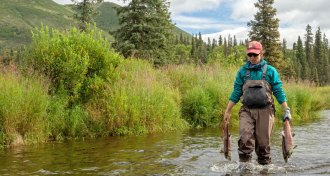 Ecosystems
EcosystemsHow researchers flinging salmon inadvertently spurred tree growth
Scientists studying salmon in Alaska flung dead fish into the forest. After 20 years, the nutrients from those carcasses sped up tree growth.
-
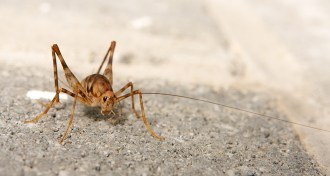 Animals
AnimalsIf you want to believe your home’s bug free, don’t read this book
‘Never Home Alone’ reveals the hidden world living in human-made spaces.
-
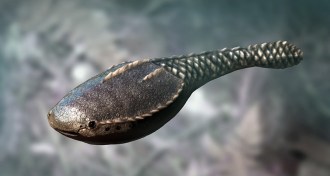 Paleontology
PaleontologyThe first vertebrates on Earth arose in shallow coastal waters
After appearing about 480 million years ago in coastal waters, the earliest vertebrates stayed in the shallows for another 100 million years.
-
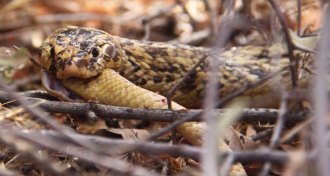 Animals
AnimalsHow a snake named Hannibal led to a discovery about cobra cannibalism
Scientists discovered that cobras in southern Africa eat each other more often than thought. And that may be true for cobras in other places as well.
-
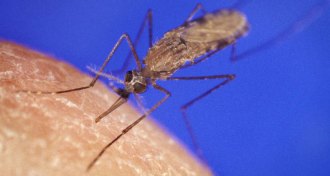 Genetics
GeneticsIn lab tests, this gene drive wiped out a population of mosquitoes
For the first time, a gene drive caused a population crash of mosquitoes in a small-scale test.
-
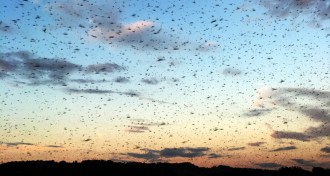 Ecosystems
EcosystemsConfused mayflies wreak havoc on a Pennsylvania bridge
Cleaning a river in central Pennsylvania brought back mayflies, which now pose a threat to motorists crossing a bridge.
-
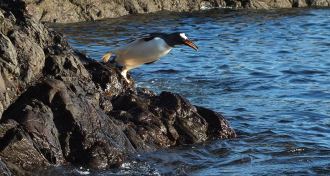 Animals
AnimalsA gentoo penguin’s dinner knows how to fight back
Cameras attached to gentoo penguins off the Falkland Islands revealed that, despite the birds’ small size, their lobster krill prey can sometimes win in a fight.
-
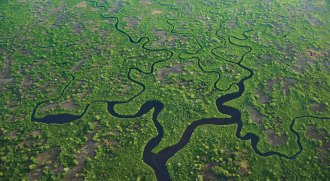 Ecosystems
EcosystemsA freshwater, saltwater tug-of-war is eating away at the Everglades
Saltwater is winning in the Everglades as sea levels rise and years of redirecting freshwater flow to support agriculture and population growth
-
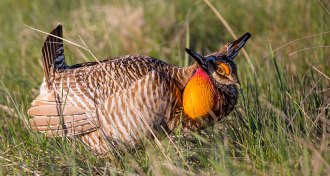 Animals
AnimalsIn the animal kingdom, what does it mean to be promiscuous?
A review of hundreds of scientific studies finds that the label “promiscuous” is applied to a surprisingly wide range of mating behaviors in animals.
By Betsy Mason -
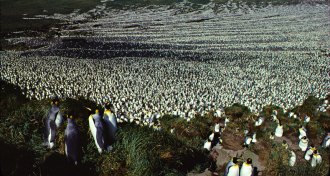 Animals
AnimalsWith one island’s losses, the king penguin species shrinks by a third
Once home to the largest known colony of king penguins, Île aux Cochons has lost most of its birds for unknown reason.
By Susan Milius -
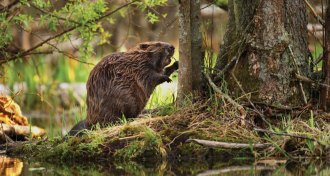 Animals
AnimalsGot an environmental problem? Beavers could be the solution
A new book shows how important beavers have been in the past — and how they could improve the landscape of the future.